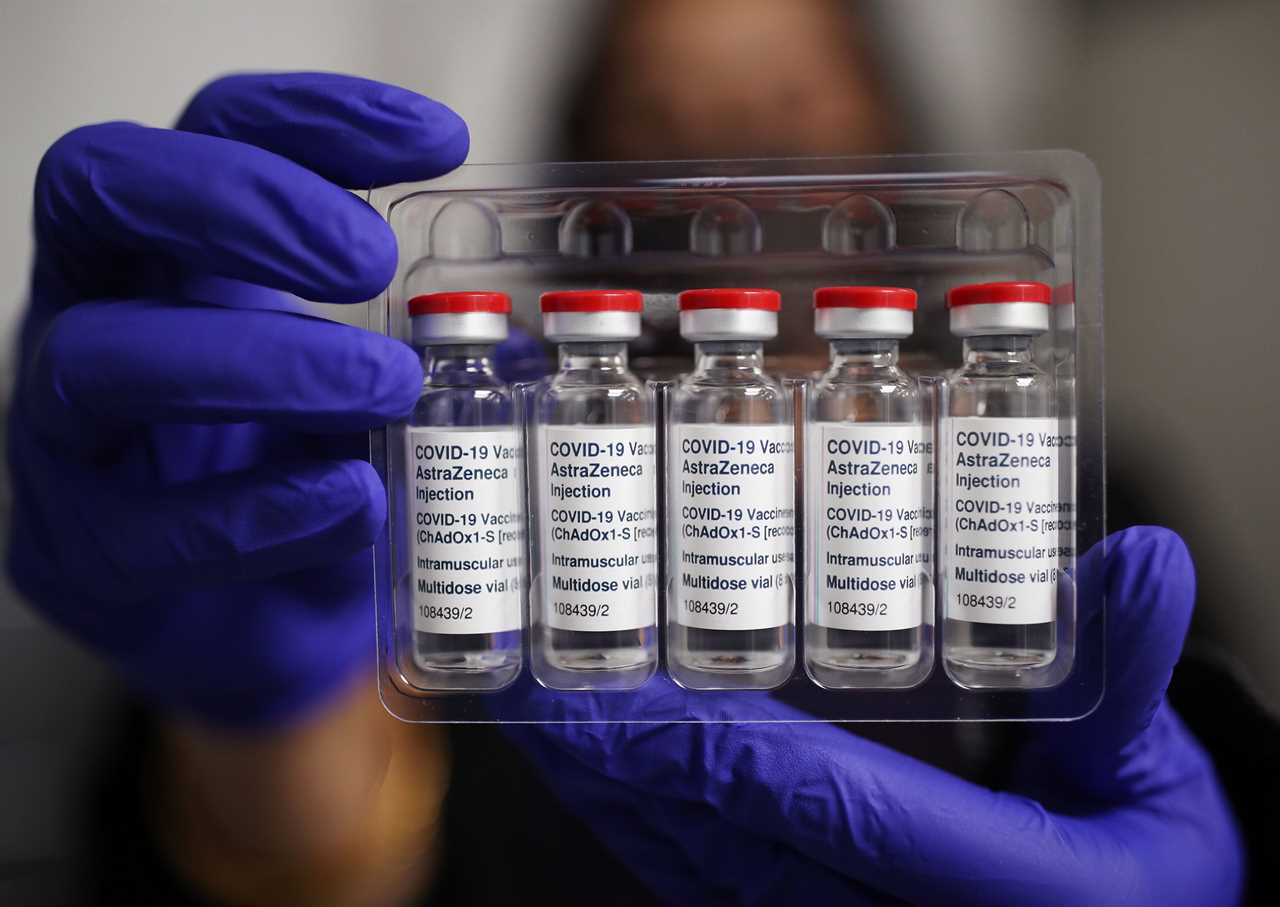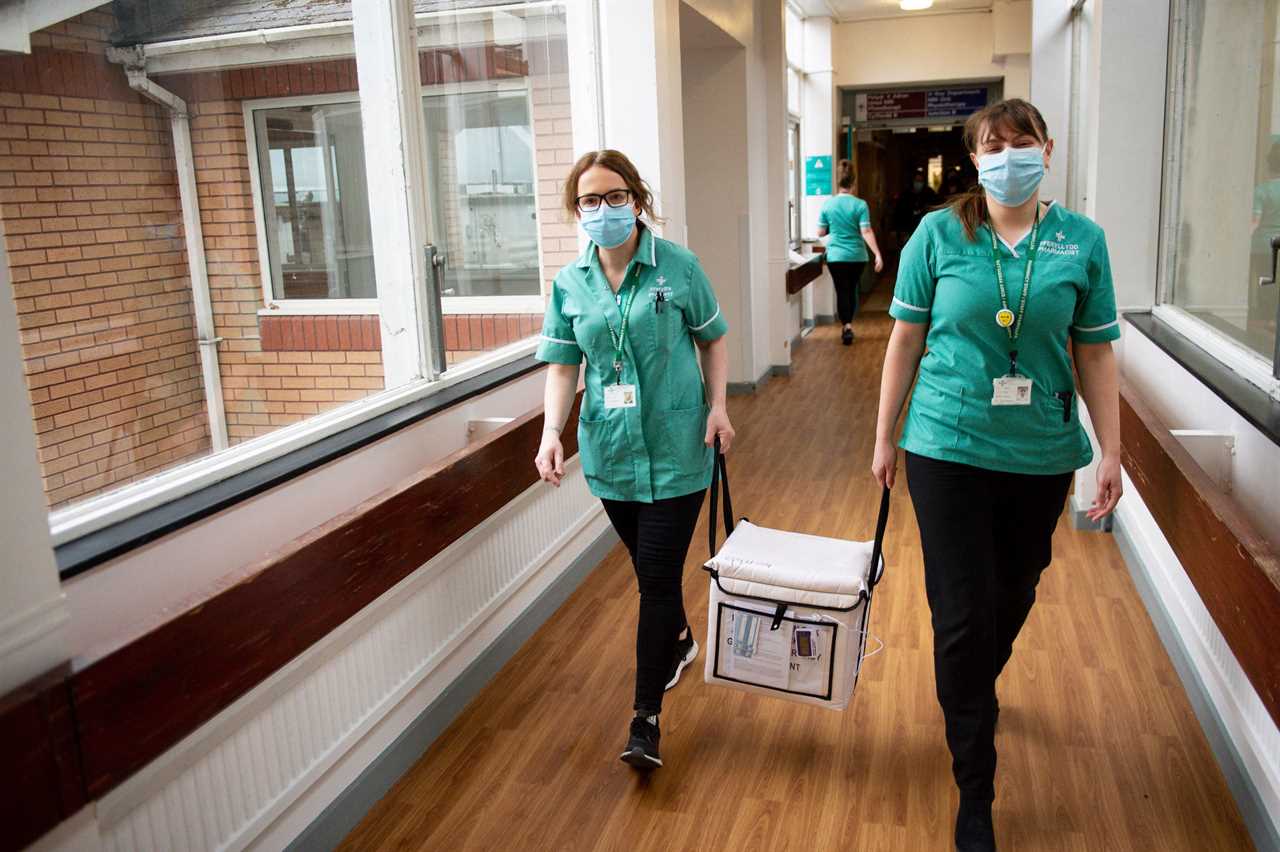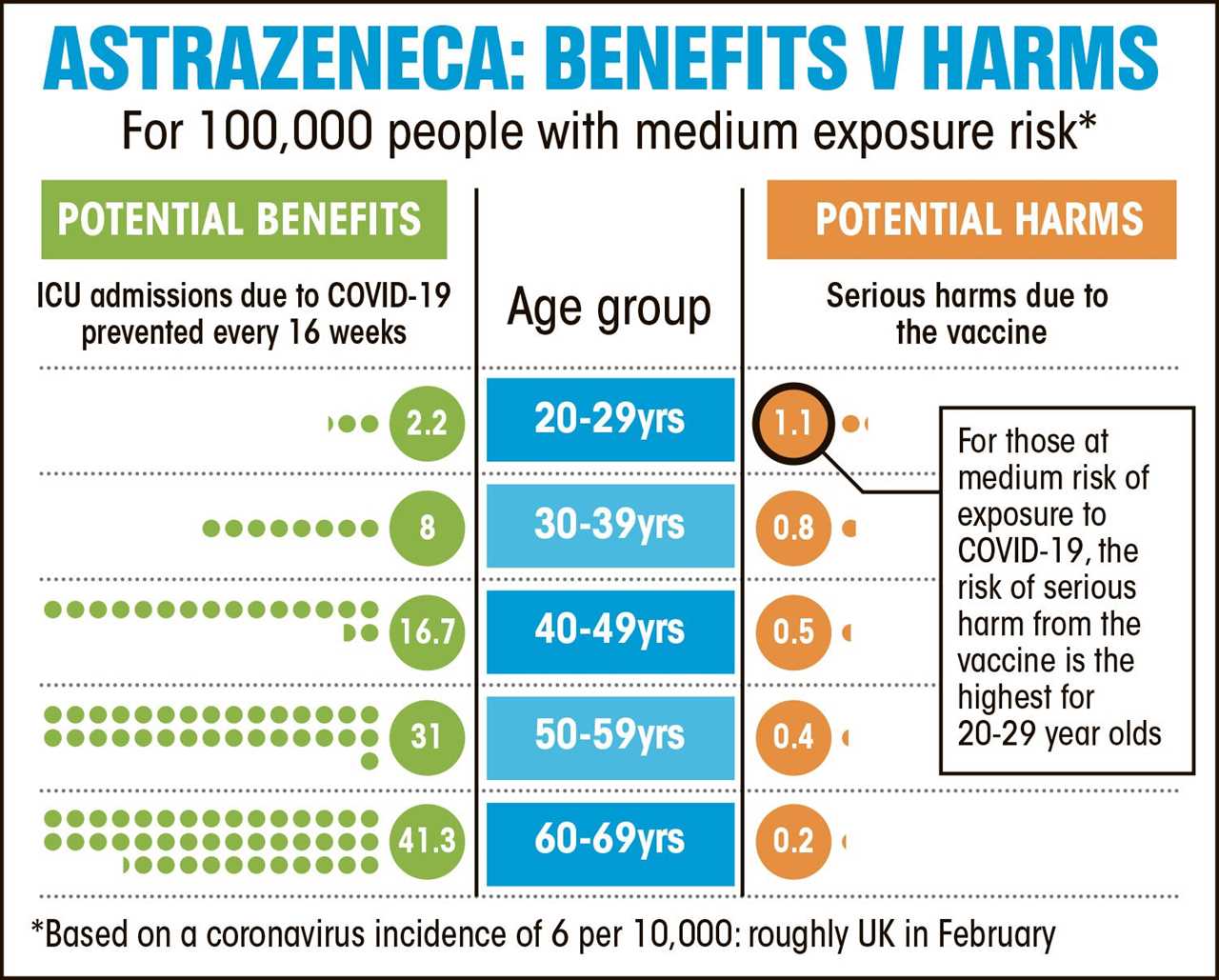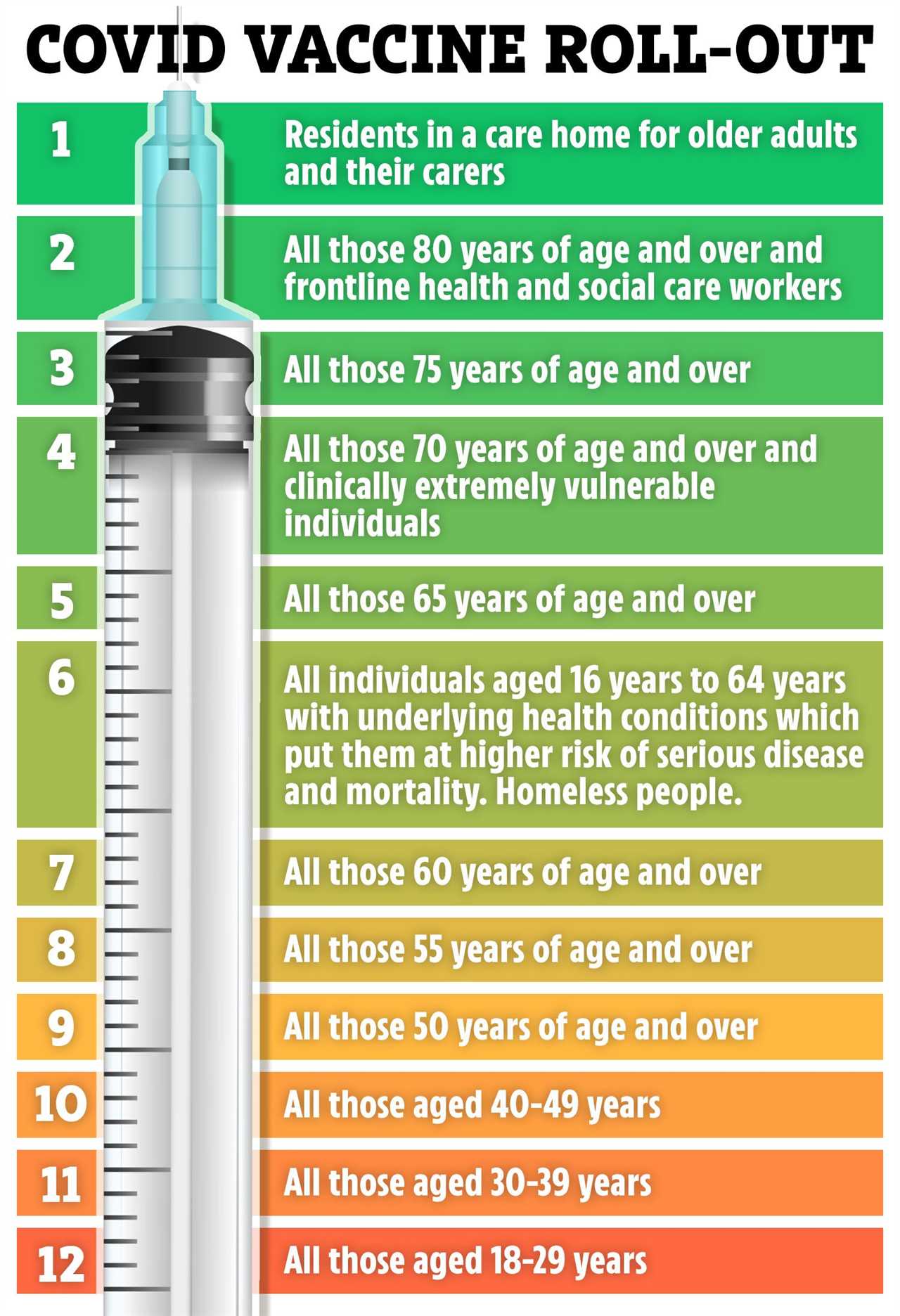ANOTHER potentially dangerous blood condition has been seen in a small number of people given the AstraZeneca jab.
EU vaccines watchdog the European Medicines Authority (EMA) has announced there have been five cases of capillary leak syndrome in patients given a dose on the continent.

Read our coronavirus live blog for the latest news & updates…


The rare condition sees blood leak from tiny vessels into muscles and body cavities.
It results in a sudden drop in blood pressure, and if left untreated, can cause organ failure.
Data suggests the UK’s regulator, the MHRA, had spotted three cases of capillary leak syndrome out of 20million people given the AstraZeneca vaccine by late March, MailOnline reports.
It comes as:
- 12million Brits will blow £2billion on shopping, drinking, eating and daytrips on ‘Freedom Monday’
- The official Covid R rate has stalled close to the critical 1 as Sage fail to agree UK figure for second week
- Daily cases have fallen by seven per cent in a week as 3,150 more infections were recorded yesterday
- Spain and Italy may be added to safe list as Brits get green light to book summer holidays and free Covid tests on cards
- Airlines warn holidays will STILL be too expensive for most Brits from May due to ‘unnecessary’ PCR tests
The news was reported days after Brits under 30 were told they’ll be offered either the Pfizer or Moderna jabs instead following reports of rare blood clots in the brain and abdomen.
Officials insisted there is still no evidence the jab causes the blood conditions and stressed the benefits of vaccination far outweighed the risk.
A review gave just a 0.000095 per cent chance of a blood clot, while the sister of a solicitor who died of a clot less than than three weeks after getting the jab urged Brits to continue getting vaccinated.
But it’s been suggested today that AstraZeneca’s jab may be restricted for under-40s in the future.
Medical watchdogs are closely looking into the data to assess the exact benefits and risks for younger people.
Younger people appear more prone to suffering clots after vaccination.
However, there’s no cut-off age, and experts have told the publication there’s a “gradual age gradient of risk”.

Professor Jeremy Brown, a member of the JCVI, which advises No10 on jabs, told the Daily Telegraph: “We’re going to start vaccinating phase two healthy adults, starting with the 40 to 50-year-olds, and then we’ll go to the 30 to 40-year-olds.
“When we are approaching that point we’ll need to think about this a little bit more to be absolutely sure at what point in that age cut-off – given the situation we are facing at that time, and any more data that comes through on this rare complication, because more data will come through – then that might alter the age range.”
The move to recommend under-30s get a different jab does not mean it is unsafe for young people, with neither the UK’s drug regulator or the EU’s ordering the jab to be banned for certain age groups.
But both acknowledge cases of blood clots from the life-saving jab appear to be occurring slightly more often in younger adults.
Germany has halted the jab for under-60s, while France has made the same move for under-55s.
In addition, both countries have advised younger adults already given AstraZeneca’s jab that they should get a second dose of Pfizer or Moderna.

This is the opposite of the stance taken in the UK, where those who have already had one shot of AstraZeneca have been told to get a second of the same vaccine.
And the World Health Organization (WHO) said there is “no adequate data” on switching doses, although it’s understood it’s likely to be safe and effective.
Ministers insist there are enough doses of Moderna and Pfizer to cover the remaining 8.5million under-30s who have yet to be jabbed.
Meanwhile, the EMA revealed it is also reviewing reports of rare clots involving Johnson and Johnson’s Covid vaccine.
The jab which uses the same technology as AstraZeneca’s.
Four serious cases of rare blood clots with low platelets were detected in people vaccinated with the jab. One of those patients died.






